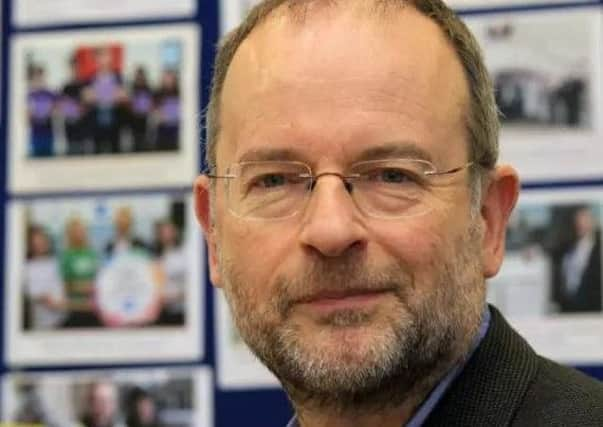Ministers criticised over scrapping of electrification schemes


The numbers, released by the Department for Transport (DfT), show that electrification of the East Midlands line from London to Sheffield would have delivered £271m-worth of greenhouse gas savings - more than 20 times the amount forecast under alternative proposals.
MPs have described the figures as “shocking”, renewing their calls for Transport Secretary Chris Grayling to reverse his decision.
Advertisement
Hide AdAdvertisement
Hide AdBut the Government has insisted that future operators of the East Midlands franchise will be under pressure to keep emissions “to a minimum”.
Under the original plans for the Midlands upgrade, the route would have been electrified all the way to Sheffield, paving the way for a new fleet of electric trains.
However, ministers announced in July that the electrification work would now be stopped at Kettering, with the current fleet of trains replaced by bi-mode engines that can run on both electricity and diesel.
Explaining the decision at the time, Mr Grayling claimed it would still deliver improvements to journey times and capacity but “without the need for wires and masts on the whole route”.
Advertisement
Hide AdAdvertisement
Hide AdBut the move sparked accusations of a “betrayal” of rail passengers, casting doubt on the electrification of the trans-Pennine route as well as giving rise to questions about the environmental cost of reverting to diesel power.
The Sheffield Central MP Paul Blomfield has been pushing ministers to release details of and environmental assessments carried out by the DfT through a series of written questions.
Responding to his latest request for information, the Transport Minister Paul Maynard confirmed that while the switch to bi-mode trains is expected to deliver £11m-worth of greenhouse gas savings over the next 60 years, full electrification was forecast to generate £271m-worth over the same period.
Both figures are the result of calculations that reflect the expected reduction in carbon emissions.
Advertisement
Hide AdAdvertisement
Hide AdSpeaking to the Yorkshire Post, Mr Blomfield said the numbers were a “shocking admission of the massive cost to the environment of the Government’s failure to electrify the Midland Mainline”.
“I’ve had to ask multiple questions in Parliament before squeezing the facts out of the Department for Transport,” he said.
“But now they’ve admitted that electrification would have delivered more than twenty times the amount of greenhouse gas savings than the use of bi-mode trains.
“I’ll be pressing them to think again.”
A report that was published in response to one of Mr Blomfield’s previous questions notes that the full proposed upgrade of the line presented “very good” value for money.
Advertisement
Hide AdAdvertisement
Hide AdIt also suggests that the switch to electric trains would have had a dramatic impact on nitrogen oxide emissions.
Responding to Mr Blomfield’s comments, a DfT spokesman explained that the new fleet of trains has not yet been designed, but said the department has been clear that it wants them to be “the cleanest ever bi-mode trains”.
They also stated that the next operator of the East Midlands franchise “will have to find innovative ways to keep emissions to a minimum”.
“We are delivering the biggest upgrade of the Midland Main Line since it was completed in 1870, rolling out new bi-mode trains across the route to give passengers more comfortable and reliable journeys,” they added.
“These new trains will deliver better journeys for passengers sooner, without the need for disruptive engineering work on the whole line.”